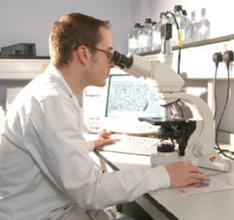Given the ruminations of Stephen Hawking, Richard Dawkins and Daniel Dennett, one might have thought that the absolute limit of scientistic arrogance had been reached. But think again. Sean Carroll, a theoretical physicist at the California Institute of Technology, was quoted in a recent news article asserting that “science” is on the verge of providing a complete understanding of the universe — an explication, it goes without saying, that precludes the antiquated notion of God altogether. Before addressing the God issue specifically, let me make a simple observation. Though the sciences might be able to explain the chemical make-up of pages and ink, they will never be able to reveal the meaning of a book; and though they might make sense of the biology of the human body, they will never tell us why a human act is moral or immoral; and though they might disclose the cellular structure of oil and canvas, they will never determine why a painting is beautiful. And this is not because “science” is for the moment insufficiently developed, it is because the scientific method cannot, even in principle, explore such matters, which belong to a qualitatively different category of being than the proper subject matter of the sciences. The claim that “science” could ever provide a total understanding of reality as a whole overlooks the rather glaring fact that meaning, truth, beauty, morality, purpose, etc., are all ingredients in “the universe.”
But as is usually the case with scientistic speculation, Carroll’s thought is designed, above all, to eliminate God as a subject of serious intellectual discourse. The first and most fundamental problem is that, like Hawking, Dawkins and Dennett, Carroll doesn’t seem to know what Biblical people mean by “God.” With the advance of the modern physical sciences, he asserts, there remains less and less room for God to operate, and hence less and less need to appeal to him as an explanatory cause. This is a contemporary reiteration of Pierre-Simon Laplace’s rejoinder when the Emperor Napoleon asked the famous astronomer how God fit into his mechanistic system: “I have no need of that hypothesis.” But God, as the classical Catholic intellectual tradition understands him, is not one cause, however great, among many; not one more item within the universe jockeying for position with other competing causes. Rather, God is, as Thomas Aquinas characterized him, ipsum esse, or the sheer act of to-be itself — that power in and through which the universe in its totality exists. Once we grasp this, we see that no advance of the physical sciences could ever “eliminate” God or show that he is no longer required as an explaining cause, for the sciences can only explore objects and events within the finite cosmos.
To demonstrate the relationship between God and the universe more clearly, it would be worthwhile to explore the most fundamental argument for God’s existence, namely the argument from contingency. You and I are contingent (dependent) in our being in the measure that we eat and drink, breathe, and had parents; a tree is contingent inasmuch as its being is derived from seed, sun, soil, water, etc.; the solar system is contingent because it depends upon gravity and events in the wider galaxy. To account for a contingent reality, by definition we have to appeal to an extrinsic cause. But if that cause is itself contingent, we have to proceed further. This process of appealing to contingent causes in order to explain a contingent effect cannot go on indefinitely, for then the effect is never adequately explained. Hence, we must finally come to some reality that is not contingent on anything else, some ground of being whose very nature is to-be. This is precisely what Catholic theology means by “God.” Therefore, God is not one fussy cause within or alongside the universe; instead, he is the reason why there is a universe at all, why there is, as the famous formula has it, “something rather than nothing.” To ask the sophomoric question, “Well, what caused God?” is simply to show that the poser of the question has not grasped the nettle of the argument.
Now Carroll seems to acknowledge the probative power of this sort of argument of first instance, but he makes the common scientistic mistake of identifying the first cause with matter or energy or even the universe itself in its endlessly fluctuating rhythms of inflation and deflation. But the problem with such explanations is this: they involve an appeal to patently contingent things or states of affairs. Energy or matter, for example, always exist in a particular modality or instantiation, which implies that they could just as well be in another modality or instantiation: here rather than there, up rather than down, this color rather than that, this speed rather than that, etc. But this in turn means that their being in one state rather than another requires an explanation or an appeal to an extrinsic cause. And the proposal of the fluctuating universe itself is just as much of a non-starter, for it involves the same problem simply writ large: how do you explain why the universe is expanding rather than contracting, at this rate rather than that, in this configuration rather than another, etc.?
Finally, a cause of the very to-be of a contingent universe must be sought, and this cannot be anything in the universe, nor can it be the universe considered as a totality. It must be a reality whose very essence is to-be and hence whose perfection of existence is unlimited. As I have tried to demonstrate in very short compass, philosophy can shed light on the existence of God so construed. The one thing the sciences cannot ever do is disprove it.
